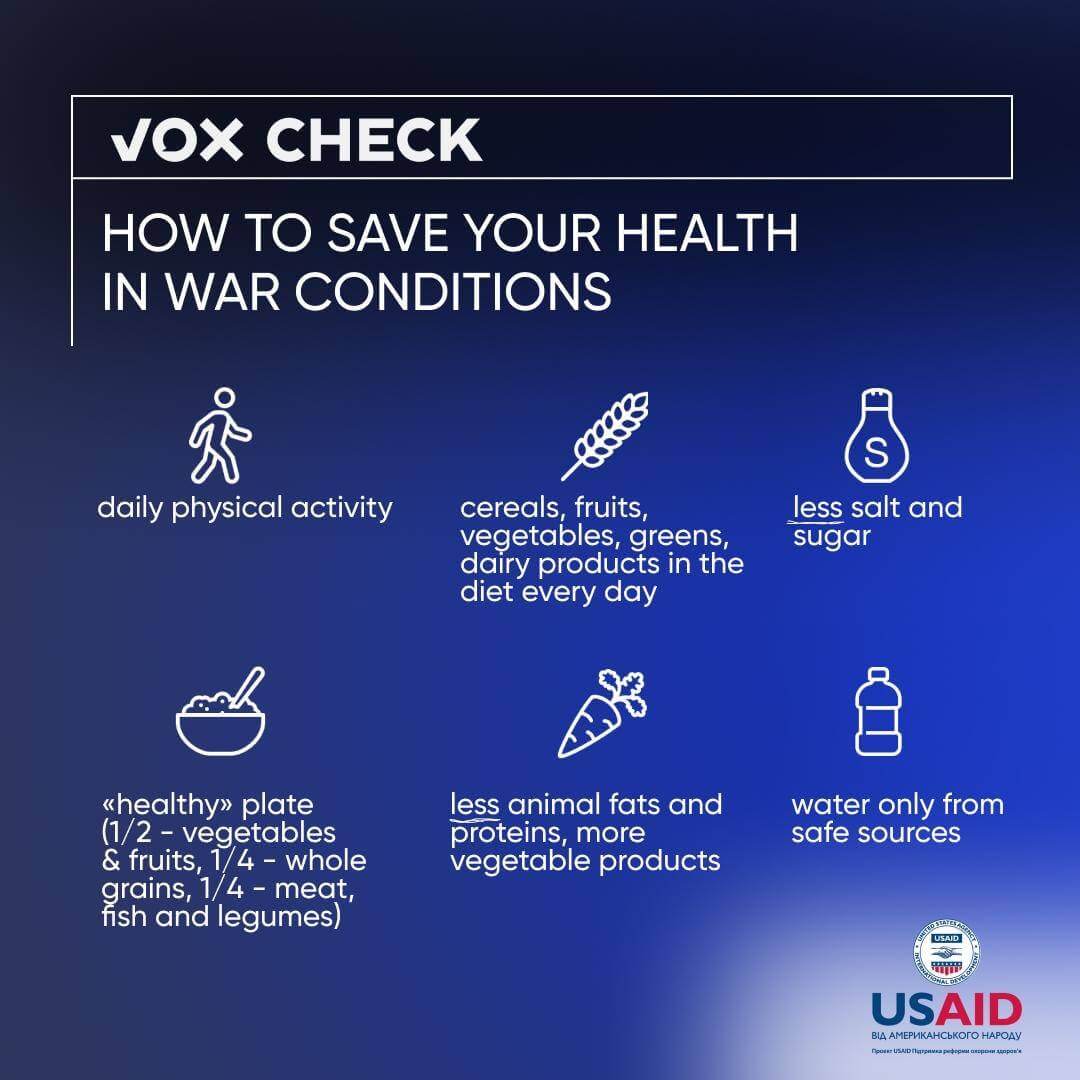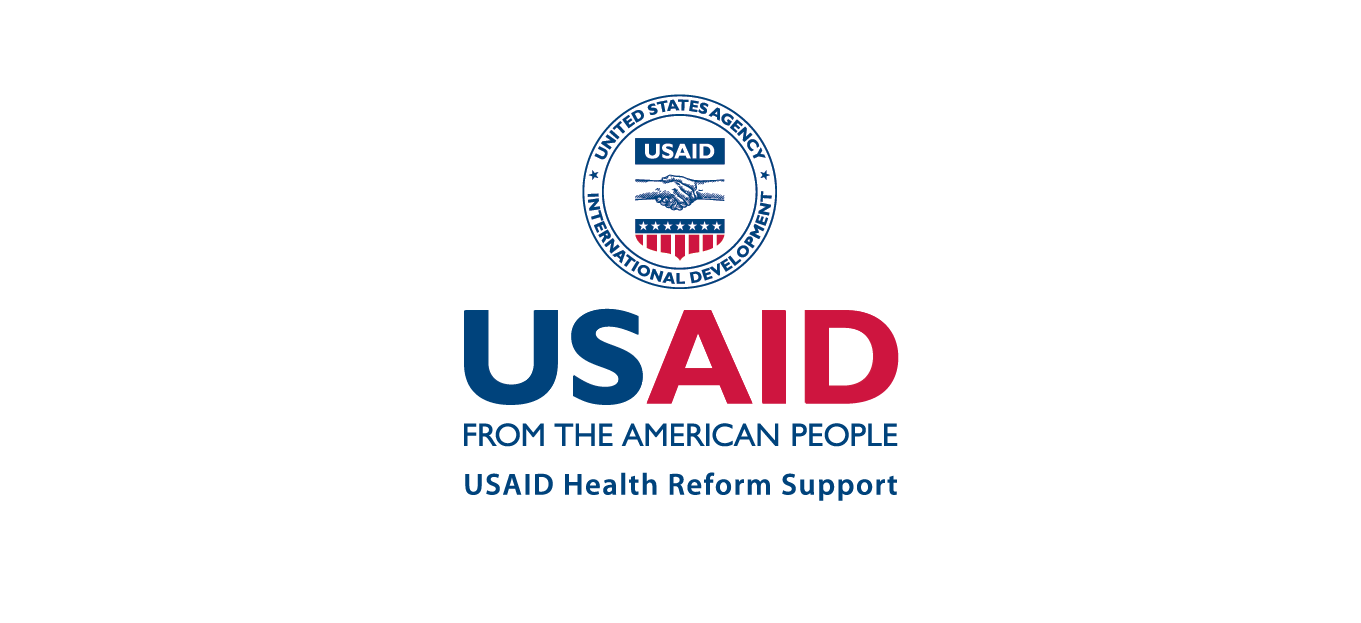Ukrainians are being intimidated with the claim that meat consumption will be banned by 2030, forcing everyone to become vegans. Conspiracy theorists suggest that this is happening at the behest of the World Economic Forum (WEF). In this way, the organization is said to be implementing its “Great Reset” program.
With the support of the USAID Health Reform Support project, VoxCheck analyzes and refutes public health narratives spread in the information space of Ukraine, Belarus, and russia on a weekly basis.
An article from Infowars is being circulated online about a 2019 document that recommends banning meat and dairy consumption by 2030, limiting individuals to three new clothing items per year, and one flight every three years. This supposedly suggests that the WEF wants everyone to become vegan and “wear uniforms” as part of the “Great Reset” program.
What’s the reality?
The resource Media Bias / Fact Check (used by independent fact-checkers within the IFCN network) rates the publications of InfoWars as conspiratorial and pseudoscientific. This media outlet largely disseminates unverified and pseudoscientific claims.
The document exists; however, it does not impose any bans nor does it recommend any. It is an analytical report titled “The Future of Urban Consumption in a 1.5°C World.” It is not an action plan for cities to follow, but an analysis of possible options to reduce greenhouse gas emissions. The report explores how cities can reduce consumption-related emissions to avoid a climate crisis. It focuses on six sectors: food, construction, clothing, transportation, aviation, and electronics. The report examines ways in which leaders, businesses, and the public can take action to change consumption habits and significantly reduce greenhouse gas emissions.
The authors calculated that transitioning to a plant-based diet and reducing food waste could decrease emissions by up to 36% by 2030. Additionally, if consumers were to buy only three new items of clothing per year, emissions could be reduced by 39%. It’s important to note that the report discusses hypothetical scenarios and does not propose any actual implementation of such restrictions. The report also mentions that reducing red meat consumption and increasing the intake of vegetables and fruits in diets could annually prevent 160,000 deaths related to cancer, heart disease, diabetes, and stroke.
The report was prepared by the international community of mayors known as “C40 Cities” in partnership with the architectural firm “Arup Group” and the University of Leeds. This initiative was not driven by the World Economic Forum (WEF). Furthermore, the report was published in 2019, prior to the creation of the WEF’s “Great Reset” initiative, which was presented in 2020 as a proposed response to the challenges posed by the COVID-19 pandemic. The “Great Reset” is a WEF initiative aimed at addressing key issues in modern capitalism, including sluggish economic growth, rising debt levels, poverty and unemployment, climate change, and increasing inequality, which can lead to political instability.
Mark Watts, the Executive Director of “C40 Cities,” described the aim of the research as follows: “This research clearly demonstrates that changing the way we consume could make a significant contribution to cutting emissions. This is a wake-up call for all leaders, business, and citizens to consider both the local and global climate impact of the things they consume, and an opportunity to better engage citizens and businesses in solving the climate emergency.” In essence, the report shows that consumption infrastructure has an impact on the climate, and therefore governments should take this into account when developing strategies. However, how to proceed is a decision made independently by each country.
Source: Ministry of Health of Ukraine
The World Health Organization (WHO) does not prohibit the consumption of animal products. According to WHO recommendations, a healthy adult diet includes meat, meat products, and dairy products (with an emphasis on lean options). On July 10, 2023, the WHO team published a study on red and processed meat in the context of health and the environment. Experts acknowledge that reducing the consumption of processed and red meat is beneficial for human health. However, red meat itself can be an important component of a healthy diet, especially at certain stages of life.
The Ministry of Health of Ukraine provides the following advice regarding the consumption of meat and dairy products during wartime:
- Consume a variety of protein-rich foods, giving preference to lean meat and poultry.
- Whenever possible, replace meat preserves with fish and legumes. Fish preserves do not contain saturated fats; they include plant oils added during preparation and natural fish oil containing vitamin D and omega-3 fatty acids.
- Reduce the consumption of red meat (beef, pork, lamb, etc.) and replace it with poultry and fish.
- Increase the consumption of skimmed or low-fat milk and dairy products, such as kefir, sour cream, yogurt, cheese, and so on.
This information piece was produced with the assistance of the United States Agency for International Development (USAID), provided on behalf of the people of the United States of America. This article’s content, which does not necessarily reflect the views of USAID, the United States Government, is the sole responsibility of Deloitte Consulting under contract #72012118C00001.
Attention
The author doesn`t work for, consult to, own shares in or receive funding from any company or organization that would benefit from this article, and have no relevant affiliations



